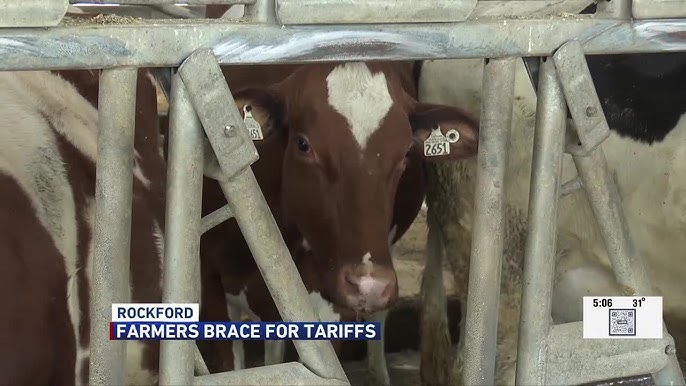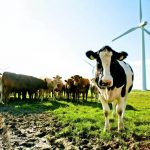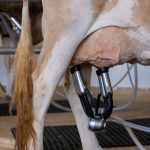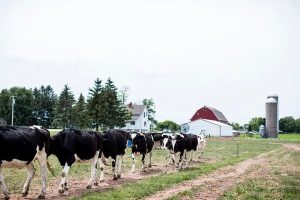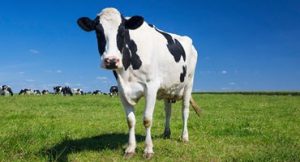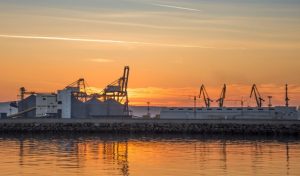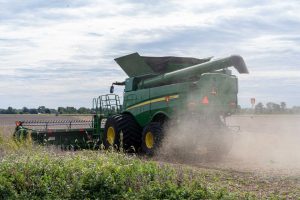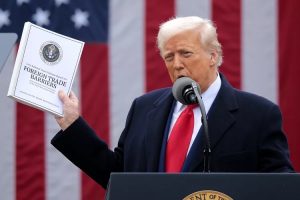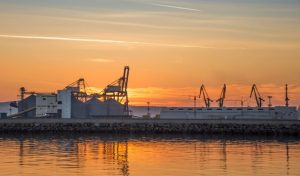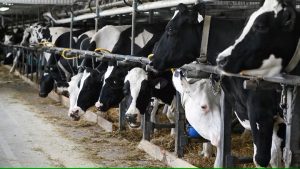
Brent Pollard slides a bin beside his grain silo. He hops in a tractor to align it with a tube that’ll pour soybeans into the contraption.
The farmer works on his property on the southwest outskirts of Rockford – a farm he’s called home nearly all his life.
Besides soybeans, Pollard grows corn and wheat and produces dairy thanks to dozens of cows on the land.
“We export a lot of products out of the State of Illinois – agricultural products that we produce on our farms,” notes Pollard. The farmer plants a portion of the roughly $13.7 billion per year agricultural industry in Illinois.
“Anything that happens that affects trade negatively can hurt our US as farmers bottom lines,” he warns.
Pollard’s concerns as of late circle potential tariffs President Donald Trump weighs on Canada, China and Mexico. While talk with leaders holds off tariffs for 30 days, the threat of America’s largest trading partners retaliating (and igniting a trade war) troubles Pollard.
“The biggest thing as a farmer, we’re looking for certainty in our business,” he says.
According to the Illinois Department of Agriculture, the state ranks fifth nationally for agricultural exports – second for soybeans and feed grains.
“After we sell corn, soybeans and wheat off this farm, I couldn’t tell you for sure where it ends up,” comments Pollard. To him, free trade agreements, like NAFTA and the USMCA, open his industry to the world.
“We really like the idea of finding new ways, new markets for our products,” he says. If tariffs are placed on soybeans or dairy, Pollard claims Illinois farmers could lose a fifth of their income.
Still, economic experts from Rockford University say the tariffs may serve a purpose.
“It’s a good tool to promote local business and to generate jobs here in America,” explains Dr. Luis Romero – chair of the Rockford University PURI School of Business.
He describes tariffs as a potential incentive for Americans to buy domestic goods: if companies raise the price of their imports, someone may choose a “cheaper” product made here.
The chair adds tariffs can shrink America’s trade deficit (when a country imports more than it exports). That difference rose to $918 billion in 2024 (the second-highest recorded in U.S. history).
Yet, with companies raising prices, Romero argues that “means inflation, means maybe the economy is going to slow down because of that.” He suggests federal interest rates may also rise to curb possible inflation.
As for the state economy, Romero sees an impact approaching agriculture, “our farmers are going to be hurt because of that. They are exporting corn, and soybeans are going to be more expensive for them.”
This isn’t Pollard’s first rodeo with tariffs. He remembers – in response to tariffs from the first Trump administration – when Chinese imports of U.S. soybeans dropped from 32.9 million tons to 16.6 million tons between 2017-2018.
“It didn’t work the first time around, so I don’t know if a blanket tariff is going to work this time,”
He asserts soybean exports have recovered, but not near 2017’s 32.9 million tons. What hasn’t helped, the farmer mentions, is Brazil and Argentina stepping up their exports in response to America imposing tariffs.
President Trump credits the threat of tariffs for cracking down on drug trafficking and border crossings.
You can now read the most important #news on #eDairyNews #Whatsapp channels!!!
🇺🇸 eDairy News INGLÊS: https://whatsapp.com/channel/0029VaKsjzGDTkJyIN6hcP1K
